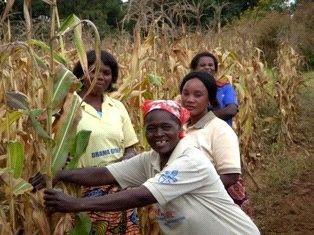What Does the Face of Integrated Development Look Like? – Part 1

In the relief and development field, people often refer to “integrated development.” What is it exactly? What does it mean and how does it work? Why do it?
Integrated development means approaching development of a community from all angles. It means first assessing the community’s assets and needs, and then implementing programs that address a number of interrelated issues contributing to poverty. For example, a project might assist with challenges such as alleviating hunger, having clean water and creating economic opportunities for residents. In addition, the approach comes from the ground up; community members have to identify what they want to accomplish and look within themselves to implement the program, rather than have solutions imposed by outsiders.
In Zambia, for example, the Zambia Anglican Council (ZAC, the national development agency of the Anglican Church in Zambia), in partnership with Episcopal Relief & Development, has implemented a program that is fully integrated. What does this look like?
Like this:
These women are part of a program in the Northern Diocese of Zambia. If you notice their shirts, they are all volunteer community agents. The three women in front are malaria control agents who have received training from the NetsforLife® program to educate their community on malaria control and prevention. The woman in blue is a water and sanitation (WASH) agent and has received training in basic hygiene, clean water and sanitation (e.g., keeping clean plates and pans off the ground, hand washing after using the restroom, maintaining a clean household environment). These agents have reduced the incidence of malaria, especially among children under five, as well as decreased the prevalence of diarrhea and other water-borne diseases.
They are a great example of what integrated development looks like in action – people who are working in complementary ways to help solve the challenges they see in their community.
———-
Danielle Tirello Givens is an International Program Officer with Episcopal Relief & Development.


